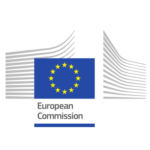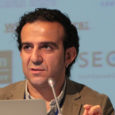“Son of a bitch! Bastard, traitor!” “Dishonored! So you’re a traitor? You should be beaten up….” “Shut up!” “Son of a bitch! You are going to pay for this!”
Such endearing banter, although not too original, could belong in a fight between teenagers or delirious hooligans during a game. Neither is true, though — these are hateful messages posted on Facebook to a journalist (namely, me — hello everyone!) after his arrest. And I spare you the posts that expressed the desire to have intercourse with my mother or other fantasies about myself.
As a journalist, I have become known for my critical approach throughout my 19 year career. The messages above arrived after my arrest on charges of supporting the attempted coup on July 15, one of Turkey’s most terrifying nights. Ten days after the coup, the waves of arrests reached reporters. All those who worked in newspapers related to Fethullah Gulen, leader of the Hitzmet brotherhood — that turned out to be behind that bloody night — were gradually arrested. And the newspapers, TV stations, and Internet sites that supported Gulen — who resides in the United States — have been closed.
Gulen’s supporters, until a few years ago in the good graces of the Justice and Development Party (AKP, at the helm of Turkey for 14 years) and welcome in the ranks of security forces and the judiciary, after the attempted coup were declared terrorists — of course, together with the journalists who worked in those circles…
After the attempted coup, the tension that had started three years ago after the breakup of the informal coalition between Erdogan and Gulen turned into a witchhunt. People ending up on blacklists that are updated daily have been filling the jails. Of course, as in any self-respecting witchhunt, blacklists include people who had nothing to do with either the coup or Gulen — critics of the ruling majority!
Under the pretext of the coup, the government started arresting those it had targeted before, but had not been able to punish. Thanks to the impunity guaranteed by the State of Emergency Law that was declared after the coup attempt, critics of both the government and Gulen were added to the blacklist. They even arrested a Marxist historian on charges of supporting the Islamic brotherhood of Gulen’s supporters. On the evening of July 26, it was my turn. How did I get that? The first page of a pro-government newspaper featured my picture with the word WANTED imprinted across it….
And so they came to knock at my door, that of a journalist who had protested against the pressures the AKP-Gulen coalition, then strong, exercised on the press — a noted opposer that had taken to the streets for arrested colleagues.
I was arrested at 22:30 on charges of “supporting and aiding Gulen’s terrorist organization and the coup.” This was the most surreal moment in my life. A journalist working in Turkey cannot but end up making the acquaintance of police stations and prisons, but there are typical charges — for example, critics of the Kurdish question may be accused of “separatism”; critics of political leaders may be arrested for “offense against the state representatives.”
Such allegations are a common occurrence for journalists in Turkey. On the other hand, as a journalist who has based most of his professional life on the opposition to coups and the brotherhood, I just could not believe I was being grouped with the journalists who were in favor of the coup. I was not the only one — local and foreign colleagues, familiar with my work, my political orientation, and my opposition to the brotherhood and the government, are in a state of total disorientation.
Three scary nights passed in a cramped cell of 5 square meters… when they sent me to court on the fourth day, I did not know what to expect. Before the hearing, I was questioned by the prosecutor. My dominant thought in the course of the three nights spent in the cell, before seeing the prosecutor, was: “How can I be associated with Gulen? Me, a supporter of the coup? What kind of links can they find? What evidence?”
When I entered the attorney’s room, my questions were answered with a big surprise. The first page of the file in front of the prosecutor was my LinkedIn profile — for a moment it looked like a job interview with a human resources manager. Almost as if he had not been the one that had had me arrested and jailed for three nights! He leafed through some other pages of the booklet with the “evidence.” There was nothing except a couple of news pieces that I wrote a few years ago and some tweets that had nothing to do with the coup or Gulen. Obviously, they were trying to make me into a “terrorist” with the first results of a Google search.
So, that was my ordeal after the coup — three nights in prison, one day in the prosecution office, and then back to freedom. Clearly they wanted to teach me a lesson, scare me because I had annoyed the government in the past. Not all of those arrested in my same list have been so lucky. Almost all of those who worked in the newspapers of Gulen’s supporters were arrested — those that Erdogan, after the breakup of the coalition, labelled as terrorists saying that he had been “deceived.” What happened to me is nothing compared to what happened to others, both in the entire history of the press in Turkey and in the aftermath of the coup attempt.
In Turkey, freedom of the press has always been threatened. Journalists have been targeted by both coup leaders and governments. The aftermath of the bloody coup attempt of July 15 was not different. However, it is difficult to take stock of a situation that changes daily. Dozens of radio stations, TV stations, newspapers, and websites were closed. One hundred journalists were jailed.
The AKP was founded in 2001 by a group calling itself more liberal than the Islamist party from which it separated. A year later, thanks to the results achieved in the elections, it came to power. The AKP leadership, however, knowing that the government team was moving on very fragile ground because of previous coups and crises, felt the need to take precautions to consolidate their power and formed an alliance with one of the most important brotherhoods in the country that, after the coup of September 12, 1980, had been not just tolerated, but sometimes also supported against the growth of the left.
The AKP, which defines itself as a Muslim-Democratic Party, under Erdogan’s leadership made an agreement with Fethullah Gulen. Gulen’s circles subtly infiltrated the ranks of the state, forming what is now called “a parallel state” that tries to prevent any attacks against it. From the police to finance, from the media to football, Gulen’s followers began to represent the AKP team within the bureaucracy. This secret coalition has inflicted severe blows on media freedom, e.g. by condemning various newspapers to pay fines for several billion euros or by jailing hundreds of Kemalist generals to weaken the power of the army.
Yet, as in all partnerships, sooner or later a crisis was inevitable. The coalition has grown, becoming increasingly influential, and at some point the two partners wondered who was the most powerful. What was the spark, no one knows exactly. However, those who yesterday called each other brothers are now accusing each other of being terrorists.
Turkey is experiencing one of the most significant fractures in its recent history — fractures that can sometimes become grounds for hope. Are we capable of taking a path that will lead us to a better democracy and, for us journalists, greater freedom of the press? Unfortunately, we do not have many reasons to be optimistic. In history, the struggle between two Islamist leaders has never stemmed a better democracy.

This article was originally written for OBC Transeuropa as part of the European Centre for Press and Media Freedom (ECPMF) project, co-funded by the European Commission. K2.0 is an ECPMF project partner and has re-published the article with permission. The contents of this publication are the sole responsibility of the project and can in no way be taken to reflect the views of the European Union.


